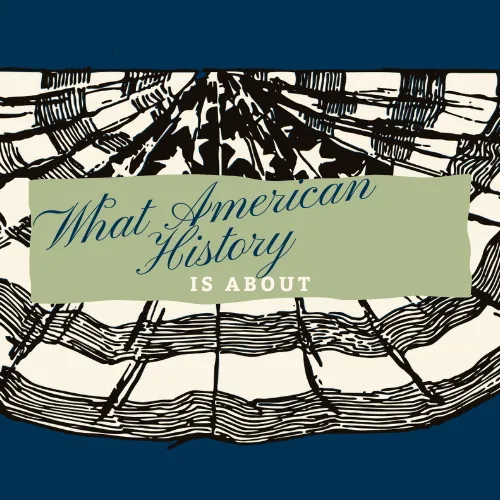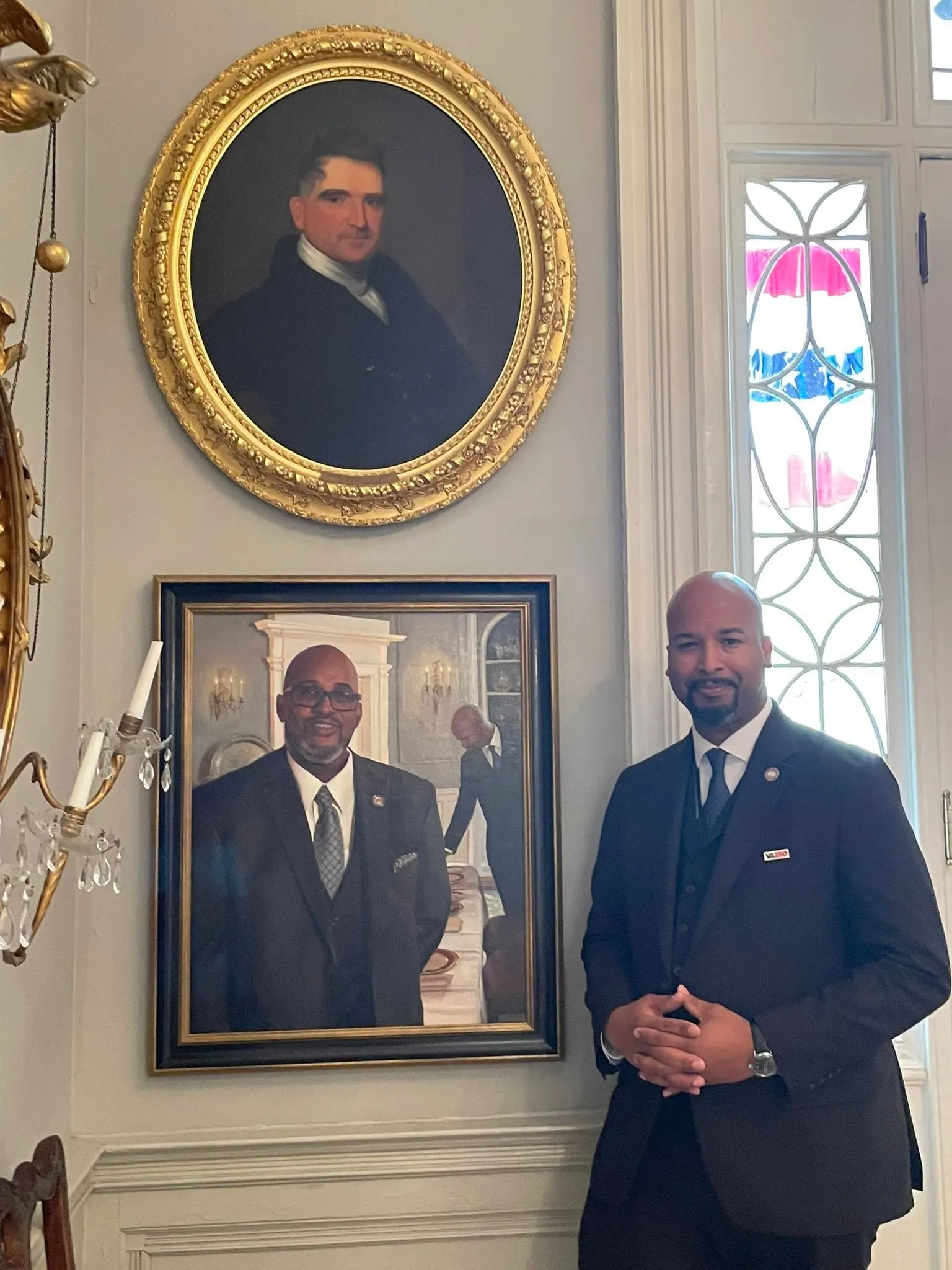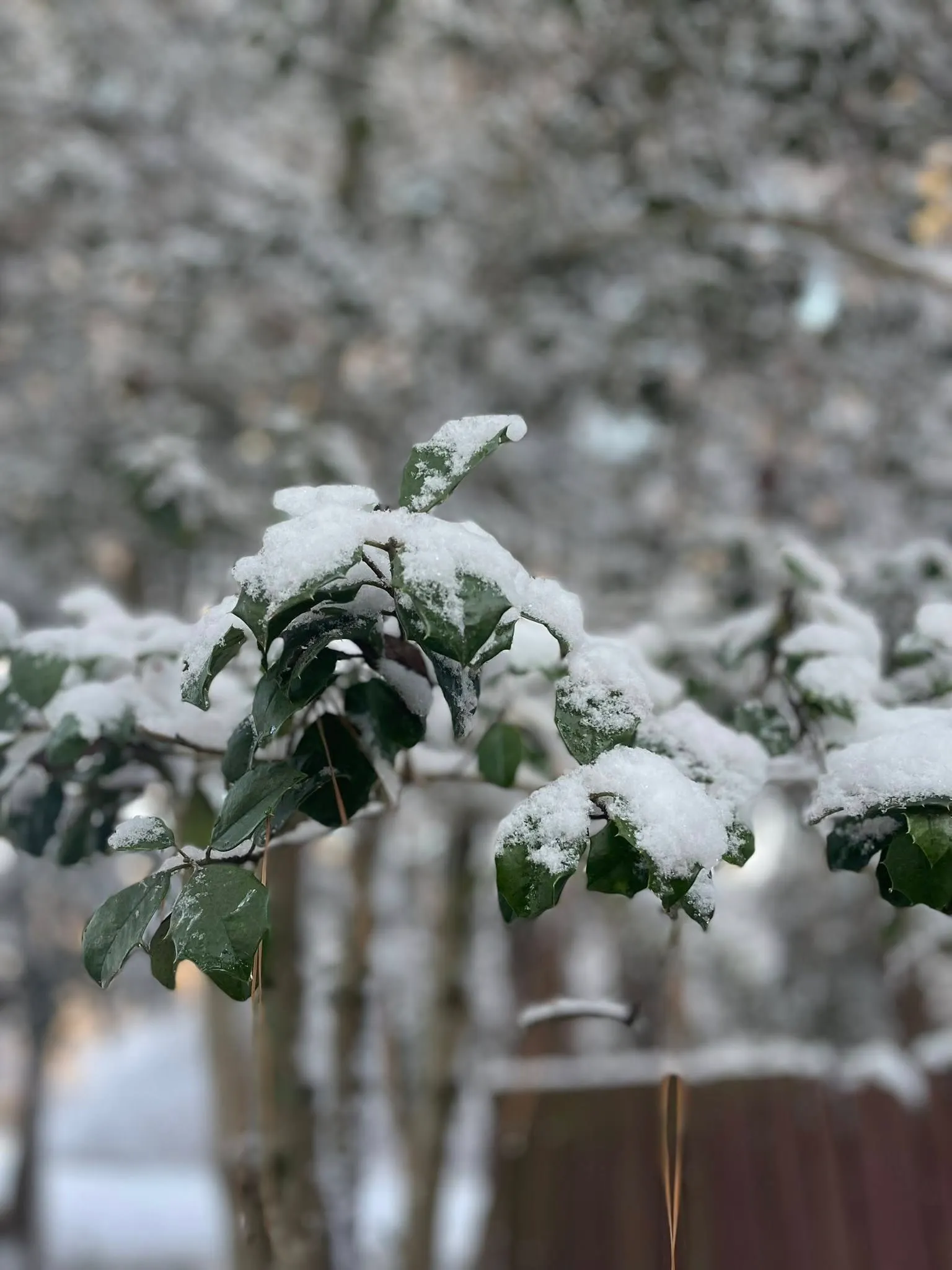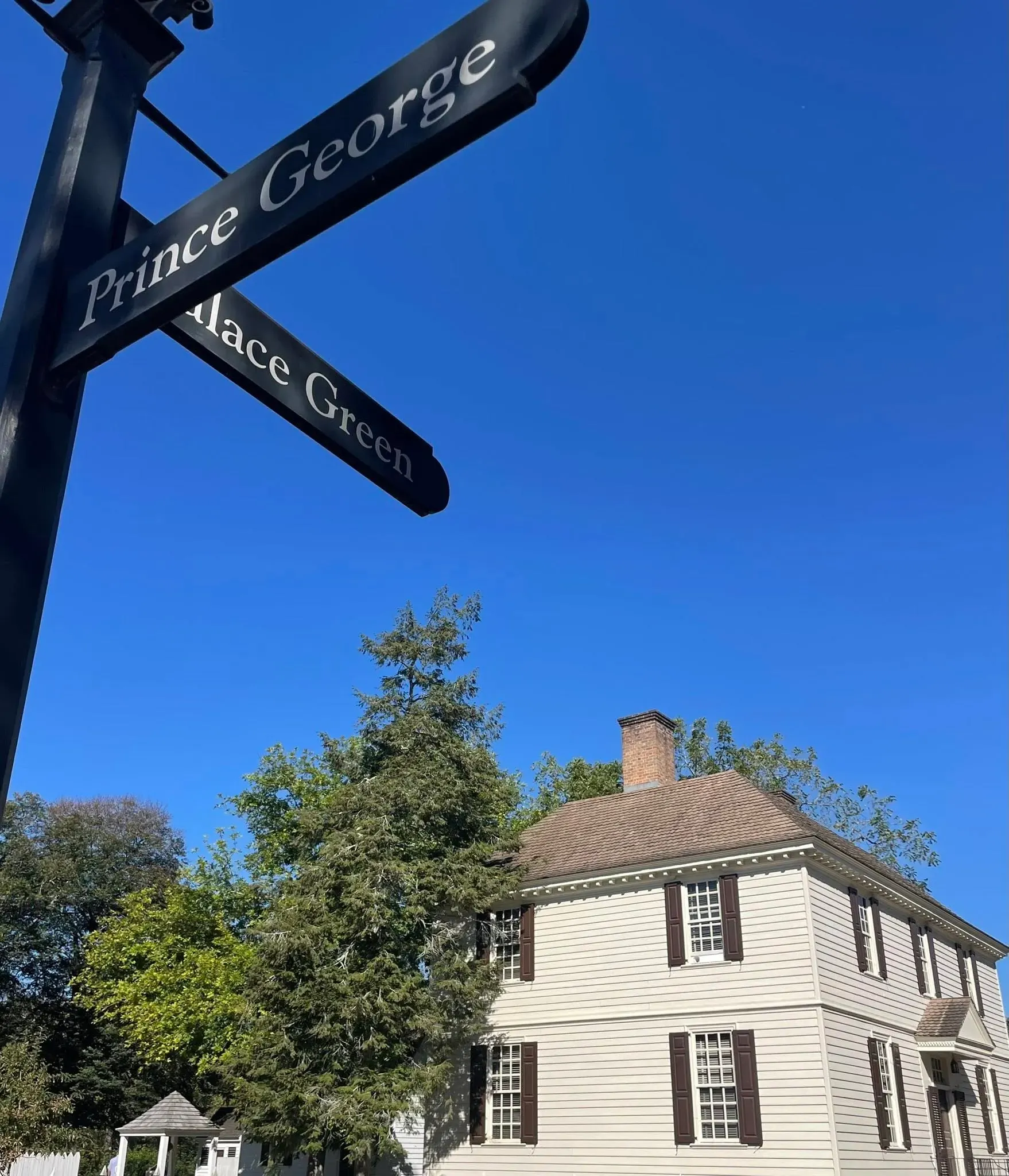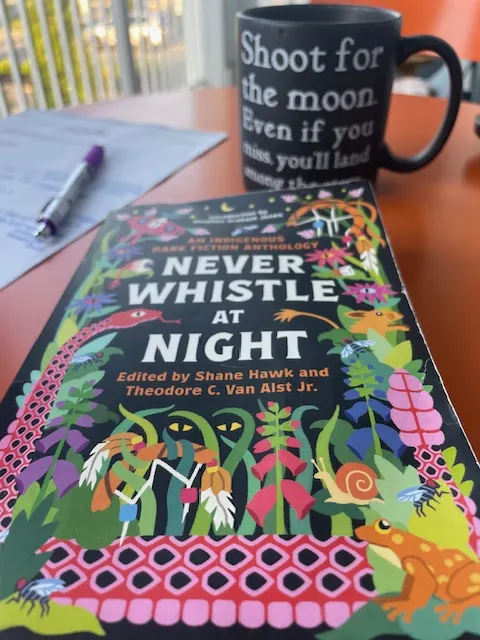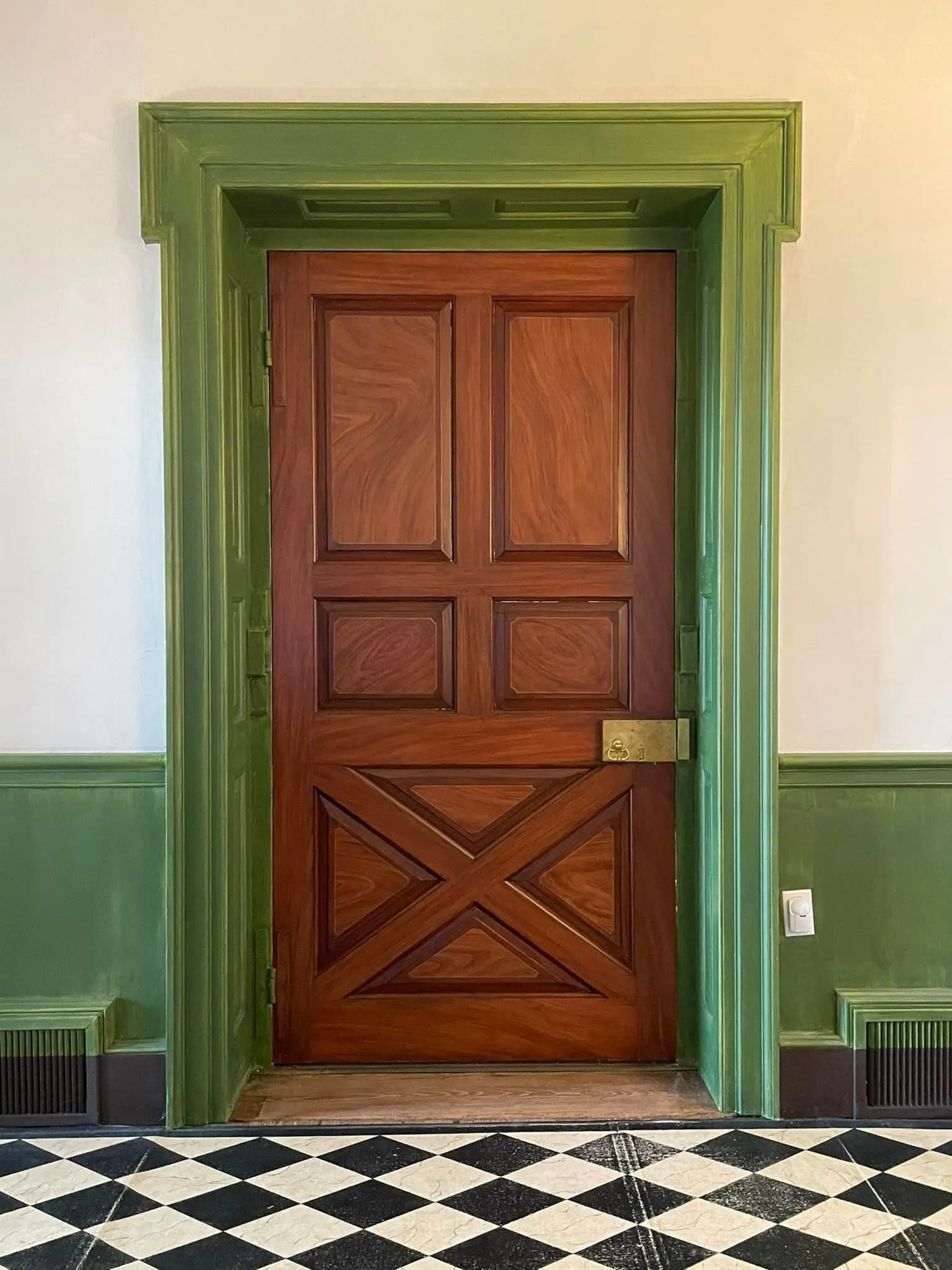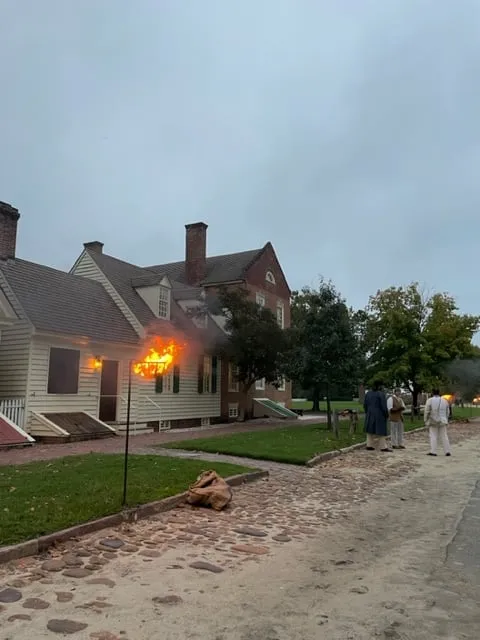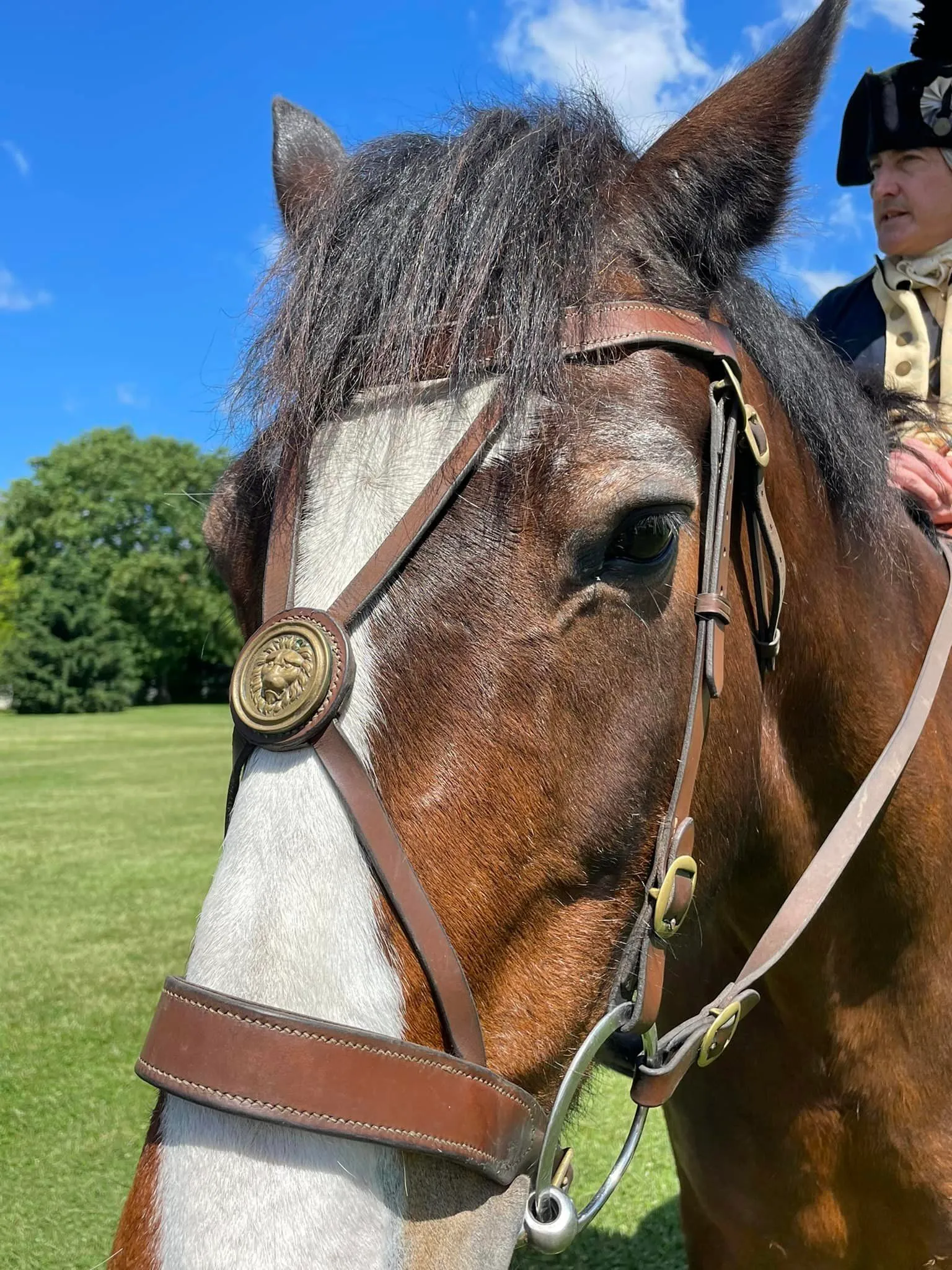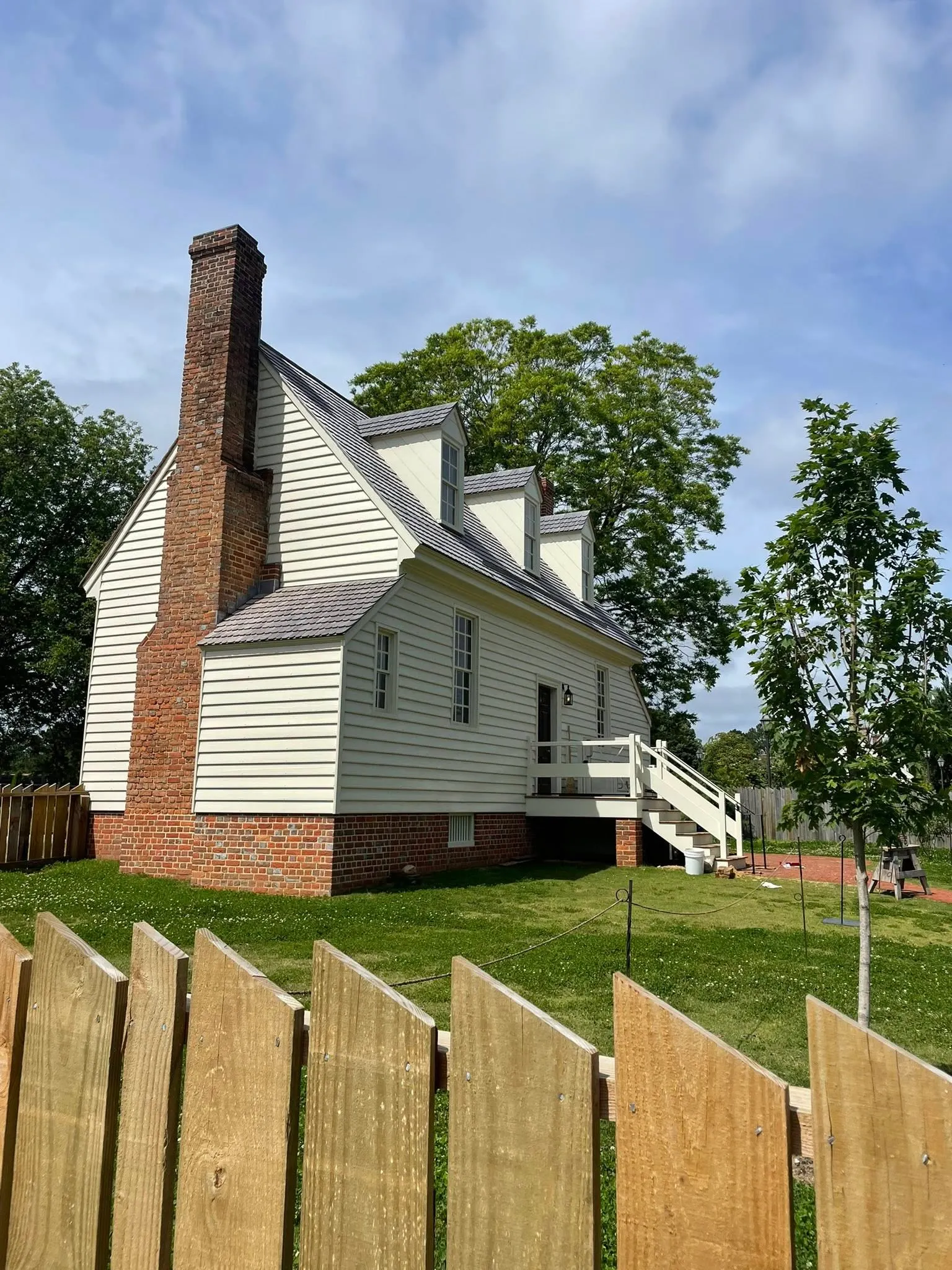History Is About Humans: Dig Deeper Into the 18th Century for a Better Future
Learning from the words of history's humans.
I admit, it might seem like I've been slow to publish posts here but I've been taking history in and focusing on my Free At 50 blog business. In fact, one of my most recent posts there was inspired by my research for this blog! Curious? Click here and you can see how reading the words on Jefferson's epitaph inspired me to share a lesson in personal branding.
That's the thing, right? We can always learn from history. Kurt Smith, our amazing Jefferson actor historian here in Colonial Williamsburg (CW), often says "history is not there for us to like or dislike, it is simply there for us to learn from."
I couldn't agree more. He is one of two men in the world currently portraying Thomas Jefferson full-time; he shares direct quotes from Jefferson that have me looking up more. Letters, mostly. But it's how I fell upon his instructions for his epitaph.
RELATED: Click here to read CW's 2023 interview with Kurt Smith that shares insight into his world.
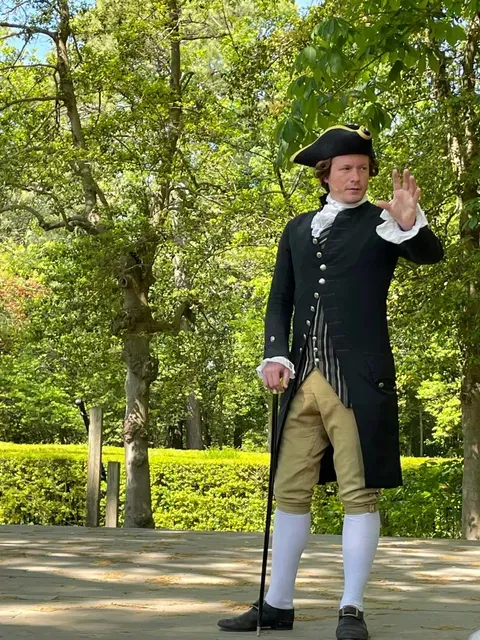
Kurt Smith portraying Jefferson, April 2024 in CW
Necessary disclaimer: As a blogger, I use affiliate links sometimes! I may receive commission from purchases I share; it does not change your price but sometimes you might get a discount.
Learning from the 18th century: sometimes you stick with what works.
Wandering around CW and visiting the trades, I'm struck with two main thoughts:
1) it's important to preserve the skills being taken over by mass production
2) as much as we've progressed, some things stay the same: and they should
One of my favorite places to see what "still works" today is the Apothecary in CW.
Check out this post I wrote after a stop in to visit and get some remedies you can still use today for everything from heartburn to an upset stomach.
We're fortunate to live near what's currently the largest living history museum in the world; but I know there are people out there, all over the globe, preserving practices and trades from the past- please share anywhere you've visited or if you're one of the people doing it!
RELATED: To learn more about the trades in CW, click here.
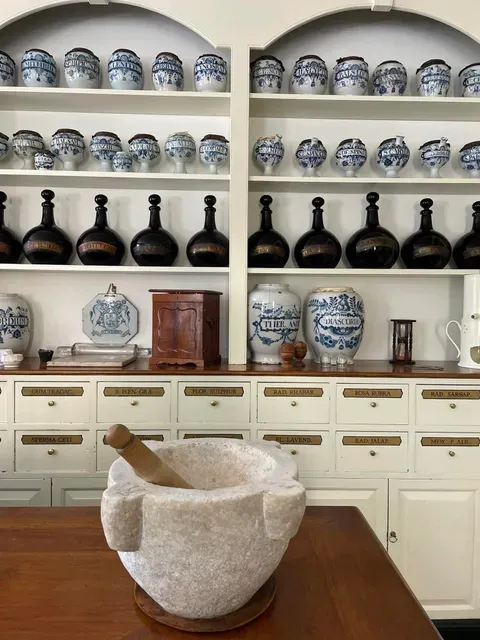
Interior of CW's Apothecary, April 2024
More ways to learn from history.
Archaeology.
Truly, what's found in the ground is foundational (quite literally) to learning about our past. Projects like the excavation of Custis Square and the Bray School here in CW are opening doors to new interpretations for the future.
In fact, the Bray School was exposed by researchers finding that the building was still in existence! And our brickmakers have fired bricks (using the 18th century process), our carpenters have been making shingles, the blacksmiths, the milliners, the joiners... all part of the project. And each trade learning and researching to make the restoration and interpretation authentic.
These two projects are only examples, not by any means comprehensive to the archaeological discoveries here. Research is ongoing.
One of my favorite sites to visit for archaeology outside CW is Historic Jamestown. It's where archaeologists are actively uncovering the mysteries of 17th century settlers in the colony of Virginia. This year, new excavation is happening outside the original fort and I've been told it's based on ground-penetrating-radar that was done to follow up on Captain John Smith's writings and descriptions of the dwellings at the settlement.
Archaeology is a deeper dive into the humans who lived our history.
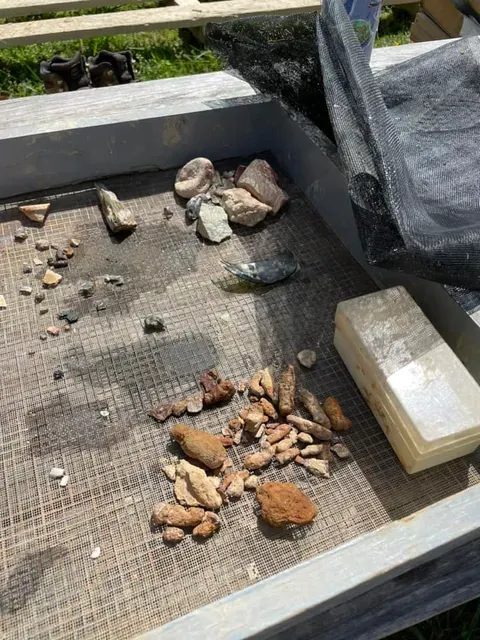
Findings at Jamestown, April 2024
RELATED: Click here for my recommended reading about Jamestown and here to follow the Jamestown rediscovery on YouTube.
Art.
Being able to see the miniature of Kinheche led me to dig deeper- and write a blog post. But honestly, there is so much art that speaks volumes of history. Every picture (or object) is worth well more than 1000 words!
I'm on a mission to write more about history behind individual pieces of art. Stay tuned as the posts get published! One that is on my mind a lot lately is an object of art, related to music: the kit violin.
Why? Kurt referencing the one Jefferson played to win over his wife Martha's heart. Art definitely helps us see the into the humans who lived history.
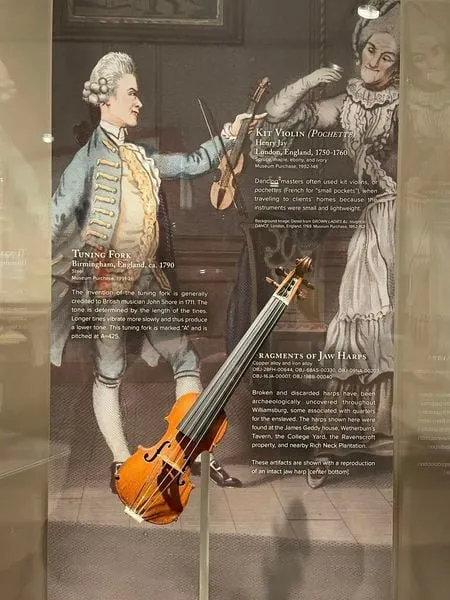
Kit violin on display at the Art Museums of CW
My take on the darkness of history.
One of Kurt's closing remarks encourages us to include the darkness of history as well as the light. My take: it's relevant. What if we erased the discussion of slavery because it was too grim? What if the Germans closed Auschwitz? What if we didn't have holocaust museums around the country? Could history be repeated?
This blog is a mix of journaling what I learn, my musings, and my passion to share American history - especially my favorite era, early American history. Sometimes that includes a little bit of darkness but that's ok IMO. It's all fascinating and it's all human.
One thing I have learned: humans were always human, and that my friends, is a complex thing.
So before closing this article out with words from history, I'll say this: dig deeper.
- Read the actual words of history's humans not just second-hand (or even 3rd and 4th-hand) accounts and opinions in biographies and other books or movies and musicals meant to entertain. (know the difference my friends!)
- Learn about the actions of the humans in history.
- Learn about what they ate, how they built their businesses, their trades and skills, the music they listened to and so on.
Closing words from history.
An excerpt of a letter to Benjamin Franklin about learning from history, specific to a Nation's success and avoidance of ruin. Click here to read the letter in full for complete context and citations.
To Benjamin Franklin from Cadwallader Colden, [November 1749]
From Cadwallader Colden
Draft: New-York Historical Society
[November, 1749]
I receiv’d by the last opportunity from New York the Proposals relating to the Education of Youth in Pensylvania.
(letter continues)
No doubt money can do great things but I think the Power of a Nation consists in the knowledge and Virtue of its inhabitants and in proof of this history every where allmost shews us that the Richest Nations abounding most in Silver and Gold have been generally conquer’d by poor but in some sense Virtuous nations. If Riches be not accompanied with virtue they on that very account expose a nation to ruin by their being a temptation for others to invade them while luxury the usual consequence of Riches makes them an easy prey.
(letter continues)
Are you enjoying the blog? Use my online tip jar and buy me a coffee:
There is a huge practical disclaimer to the content on this blog, which is my way of sharing my excitement and basically journaling online.
1) I am not a historian nor an expert. I will let you know I’m relaying the information as I understand and interpret it. The employees of Colonial Williamsburg base their presentations, work, and responses on historical documents and mainly primary sources.
2) I will update for accuracy as history is constant learning. If you have a question about accuracy, please ask me! I will get the answer from the best source I can find.
3) Photo credit to me, Daphne Reznik, for all photos in this post, unless otherwise credited! All photos are personal photos taken in public access locations or with specific permission
